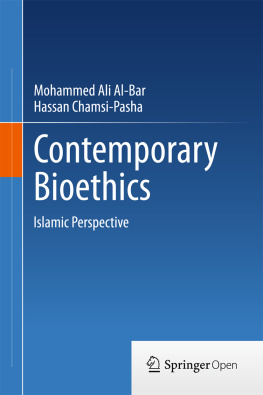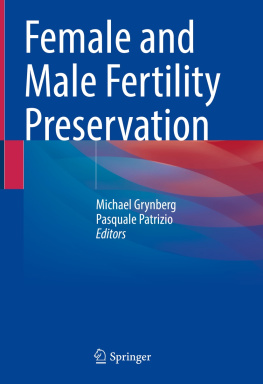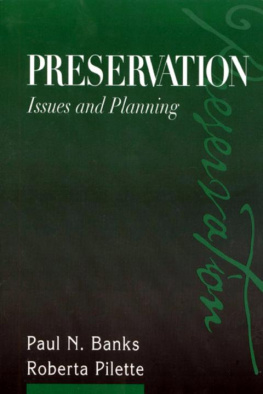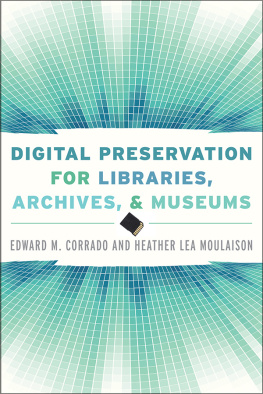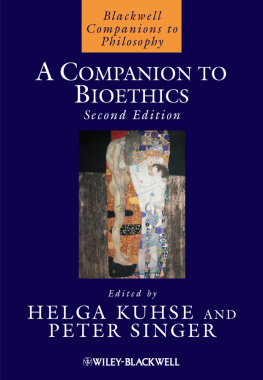The present study undertakes to examine biomedical issues as they have emerged in the last three decades. In the Muslim world, as in any part of the globe, advancements in biomedical technology has meant a number of new issues in the medical treatment and procedures that impinge upon Islamic values as taught by the Quran and the Sunna (the Tradition of Prophet Muhammad). Our investigations in bioethical issues require Muslim ethicists to examine a number of judicial decisions made by Muslim scholars in response to the growing number of cases in the clinical settings as well as national health policies adopted by various Muslim governments in the last two decades. The field of bioethics is new even in the Western countries where its principles and rules are being worked out in a standard approach to secularly mediated resolutions of morally problematic issues regarding, for instance, embryonic inviolability or end of life decisions in connection with terminally ill patients.
For several centuries, the world, and particularly Europe, has benefited from the great contributions made by Muslim physicians in the field of medicine. These contributions were not only based on technical skills but also on the role of eminent Muslim physicians in establishing medical ethics. Many prominent physicians of the Islamic civilization involved themselves with professional ethics; among them were al-Ruhawi, and al-Razi (Rhazes). Both wrote the earliest and most thorough books on medical ethics over a 1000 years ago [].
In this study we hope to bring these and other ethical issues on which Islamic scholars have provided religious-moral guidance by investigating the foundational sources of Islam like the Quran and the Sunna.
Ethics in this Study
It is important to begin our study by elucidating some key concepts with which we will be concerned in this research. The most important term that we need to formulate in view of its central role in Islamic legal-ethical decision-making is ethics. Although the term ethics is clearly a heritage of all humanity experiencing moral dilemmas in their everyday relations with other persons, in this study we have taken ethics to mean that inquiry which examines the rightness and the wrongness in human conduct. Human conduct is informed by moral principles which determine the outcome of particular acts or activities. Furthermore, according to Beauchamp and Childress, ethics is a generic term for various ways of understanding and examining moral life []. In this latter usage, then, it is appropriate to speak about normative and non-normative ethics, depending upon the sources of this understanding. Normative ethics based on the source of these norms, attempts to understand which general moral norms should we accept and why. In contrast, ethical theories attempt to identify and justify these norms revealing justificatory reasoning that provide resolution to moral dilemmas. However, ethics is concerned with examining human conduct and, therefore, it seeks to find ways of predicting practical aspects of human activity by investigating moral problems, practices and policies in professions, situations, and public policy. In other words, ethics is concerned with applications and in this sense bioethics is a branch of applied ethics concerned with resolving problems in the area of living sciences, including research and practice in the field of medicine.
In contrast to normative ethics, non-normative ethics which takes human experience, culture, and history as important sources of moral decision-making takes the form of descriptive ethics which studies how people reason and act. Thus, for instance, anthropologists, sociologists, psychologists and historians study the norms and attitudes of societies towards moral issues in different societies and epochs and the factors that are used to justify their actions in different professions and in matters connected with larger public. The other branch of non-normative ethics is meta-ethics. Meta-ethics involves the analysis of conceptual language and methods of reasoning in ethics. It addresses the meaning of right and wrong, virtue and vice, the good and the bad, and so forth in the larger global context. In short, it addresses the ethical epistemology and forms of justificatory reasoning.
In this study, we use ethics and morality interchangeably to refer to norms about right or wrong in human conduct that are so widely shared in a certain society. These norms differ, at least in details, from one society to another, and from one era to another in the same society. However, many principles, rules and virtues remain constant across different cultures and different times. For instance, almost all persons know that lying, stealing and killing an innocent person is immoral; and veracity, fidelity and saving a human life is a great virtue and a highly commended moral act. Our interest in this book is to discuss the sources of common principles of morality and ethics to show that commonalty unites all human beings in understanding the difference between moral and immoral. This is the scope of our first chapter, where we explain and elaborate:
Intuitive nature ( al - fitr a ) : This is a fundamental Quranic idea, which speaks about the basic nature of all human beings by which human beings can discern certain things to be morally right (honesty, truth telling, doing good, benevolence, etc.) and certain things to be wrong (lying, cheating, stealing, killing an innocent person or being unjust).
Reason ( intellect, mind, al - aql ) : God endowed humanity with the ability to use reason to differentiate between right and wrong, and to discern the proper course of action. Those who refuse to use their minds and follow their egotistic desires, and blind themselves with self-importance follow their instincts and hedonistic desires and deviate from the true path, becoming unable to minimally distinguish right from wrong. To be sure, even if they know the truth of the matter, they are inclined to follow their carnal desires and lust for material ends and tramp over whatever remains of their conscience.
The Quran extols humanity to strive to control egotistic and hedonistic desires, and it deplores those who are arrogant, mischievous and having insatiated desire for wealth and power, which they use to crush the poor and weak. Muslim theologian, Abu Hamid al-Ghazali, has admonished people correctly when he says: If you cannot reach the level of Angels, then do not fall into the level of beasts, scorpions and snakes []. We will have more opportunity to cite the Quran and the Sunna, in addition to theological and philosophical heritage of Islam, when we undertake to elaborate this point further.
Revelation ( wahy, Tanzil ) : Muslims believe that all communities had received Allahs (Gods) guidance through revelation given to the Prophets and Messengers of God. In Islam, Adam is not only first human being; he is also the first Prophet who delivered Gods message of monotheism to his descendants.
It is important to state from the outset that Muslims do not believe in original sin. Adam committed an act of disobedience by eating from the fruit of the tree which God had ordered him not to eat. According to the Quran, he and his wife, Eve, repented and God accepted their repentance and they became pure. God bestowed on Adam and Eve and their children His Grace and Blessing We honored the progeny of Adam, provided them with transport on land and sea; given them for sustenance things good and pure; and conferred on them special favors above a great part of Our creation (Quran/17:70). Furthermore, Muslims believe that God sent to every nation and people, prophets and messengers to guide them to worship one God and follow the path of righteousness. In other words, Muslims believe in all these prophets and that they brought the same religion in its essence, and worshipped only one God. This belief is the source of unity among human beings under the unity of Gods religion, which is essentially the same. However the followers of these religions distort Gods religion and bring back polytheism in different forms and shapes, by changing the pristine clear messages of the prophets altering the good teachings with adulterated misconceptions both in theology and morality. It is significant to note that, as the youngest of the monotheistic traditions, Islam addresses the whole humanity and respects all the prophets from Adam to the last Prophet Muhammad and considers all nations to have witnessed Gods uncompromising unity confirmed in all the messages and teaching of Gods true envoys on earth. Belief in Gods unity ( Tawhid ) is the basis not only for Muslim theology; but it is also the basis of morality and ethics in Islam. We will return to this subject in greater detail in the first two chapters: The Sources of Common Principles of Morality and Ethics and The Origins of Islamic Morality and Ethics. There we shall explain how Islamic theology and Islamic religious lawthe Shariah are integral and based on morality and ethics.

